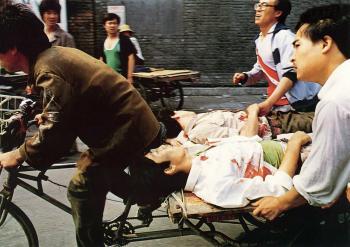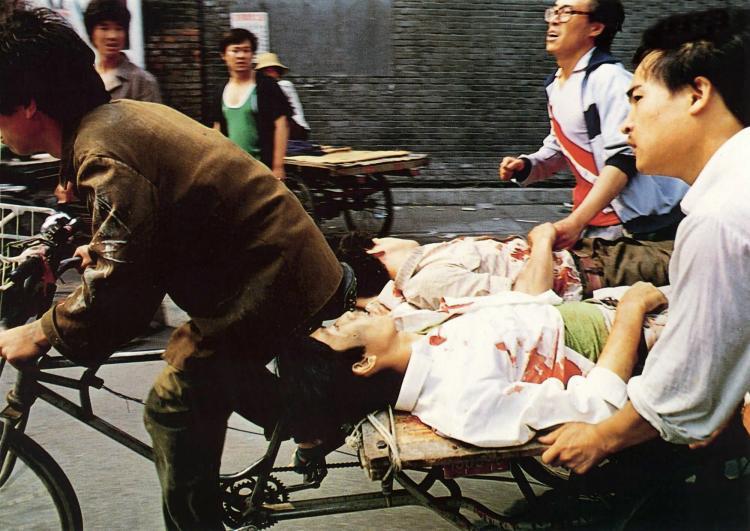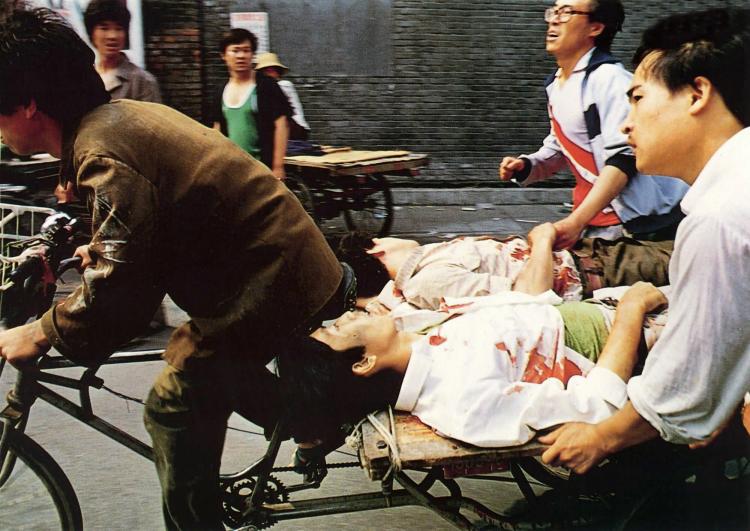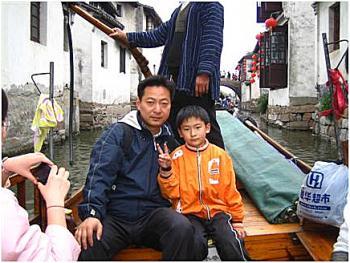As the 20th anniversary of the Tiananmen Square massacre is approaching, some Chinese intellectuals have voiced the hope that the Chinese regime and the dissidents may work together towards reconciliation. This is a misplaced hope, based on a misjudgment of the nature of the Chinese Communist Party regime.
The regime has been adapting to changing times and has been very good at political show business. But the transformation of the regime is like a bandit putting on a suit and singing opera. The Party has not changed its core nature and remains a repressive totalitarian regime.
The regime is still keeping a tight control on the media, depriving the Chinese people of freedom of speech. The regime is still brutally persecuting Falun Gong and underground churches, depriving the people of freedom of belief. The regime is still detaining many political dissidents, although occasionally it may release one or two just to show its “improvement” in human rights.
The regime has no qualms in resorting to violence to crack down on those who seek to exercise their basic rights to expression and assembly. The officials of this regime are still brutalizing many average Chinese people, from those who refuse to cooperate with the forced evacuation of their homes to those parents in Sichuan who are seeking the truth behind the “tofu” buildings that crumbled in the devastating earthquake last year, killing their children. Meanwhile, the officials of the regime are still stealing money through all kinds of “legal” and illegal means. Where is the reconciliation?
To urge the regime to seek reconciliation is similar to pleading with a serial killer to stop killing. It is foolish and futile. It is also irresponsible because it creates the deadly wrong impression that the serial killer has become benign enough to entertain such a proposal, when people should be concerned with their safety.
Those who are calling for reconciliation must consider themselves to have the best intentions. Why shouldn’t they? They are criticizing the regime for not doing enough towards reconciliation. They are also criticizing the regime for many of its wrongdoings. But fundamentally, they are criticizing the regime for not seeking its own best interests, while condemning what they perceive to be the “cycle of revenge” that may come from the people.
Being so considerate of the regime, even more considerate than the regime is of itself, is always a safe course. But to put it bluntly, those seeking reconciliation are not much better than an opportunistic broker who tries to seek favors from both sides.
Unfortunately, this is also the approach adopted by many Western politicians. They advocate “engagement” and prefer that talks take place behind closed doors. They are very considerate of the regime’s need to save face. While the regime talks the talk, though, it never walks the walk, except by releasing a couple of political prisoners from time to time (surely there is no shortage of such hostages).
While it is the job of politicians to play political games and it is fine to do so within a democracy, to perform such delicate dances with a totalitarian regime is utterly irresponsible to those suffering in China. It is also harmful to the long-term interests of United States, which is founded on fundamental principles—rights—not on short-term convenience.
The regime has been adapting to changing times and has been very good at political show business. But the transformation of the regime is like a bandit putting on a suit and singing opera. The Party has not changed its core nature and remains a repressive totalitarian regime.
The regime is still keeping a tight control on the media, depriving the Chinese people of freedom of speech. The regime is still brutally persecuting Falun Gong and underground churches, depriving the people of freedom of belief. The regime is still detaining many political dissidents, although occasionally it may release one or two just to show its “improvement” in human rights.
The regime has no qualms in resorting to violence to crack down on those who seek to exercise their basic rights to expression and assembly. The officials of this regime are still brutalizing many average Chinese people, from those who refuse to cooperate with the forced evacuation of their homes to those parents in Sichuan who are seeking the truth behind the “tofu” buildings that crumbled in the devastating earthquake last year, killing their children. Meanwhile, the officials of the regime are still stealing money through all kinds of “legal” and illegal means. Where is the reconciliation?
To urge the regime to seek reconciliation is similar to pleading with a serial killer to stop killing. It is foolish and futile. It is also irresponsible because it creates the deadly wrong impression that the serial killer has become benign enough to entertain such a proposal, when people should be concerned with their safety.
Those who are calling for reconciliation must consider themselves to have the best intentions. Why shouldn’t they? They are criticizing the regime for not doing enough towards reconciliation. They are also criticizing the regime for many of its wrongdoings. But fundamentally, they are criticizing the regime for not seeking its own best interests, while condemning what they perceive to be the “cycle of revenge” that may come from the people.
Being so considerate of the regime, even more considerate than the regime is of itself, is always a safe course. But to put it bluntly, those seeking reconciliation are not much better than an opportunistic broker who tries to seek favors from both sides.
Unfortunately, this is also the approach adopted by many Western politicians. They advocate “engagement” and prefer that talks take place behind closed doors. They are very considerate of the regime’s need to save face. While the regime talks the talk, though, it never walks the walk, except by releasing a couple of political prisoners from time to time (surely there is no shortage of such hostages).
While it is the job of politicians to play political games and it is fine to do so within a democracy, to perform such delicate dances with a totalitarian regime is utterly irresponsible to those suffering in China. It is also harmful to the long-term interests of United States, which is founded on fundamental principles—rights—not on short-term convenience.



